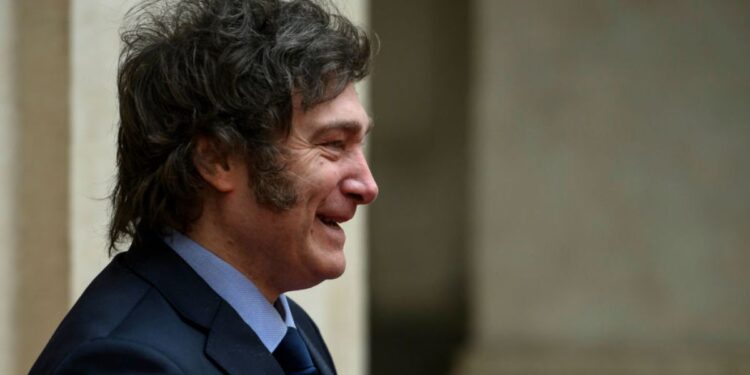Last January, Argentina recorded its first surplus in about 12 years, while new President Javier Milli continues to press to reduce spending, according to what the Argentine Ministry of Economy announced.
The government said late on Saturday that January was Javier Milli’s first full month in power after taking office in December, and he ended with a positive public sector finance budget of $589 million in surplus at the official exchange rate, the figure including interest payments on the public debt. .
Negotiation
The Ministry of Economy added – according to what was reported by the official Telam news agency – that this “fiscal (monthly) surplus is the first since August 2012, and the first surplus in January since 2011.”
Milley is negotiating with the International Monetary Fund over his country’s $44 billion loan, and has pledged to achieve balance in public finances this year.
“Zero deficit is non-negotiable,” Economy Minister Luis Caputo said on Friday on the X platform.
Milley, an economist, called for a sharp reduction in spending and reducing public debt on the way to dollarizing the economy.
High inflation
After a 50% devaluation of the peso, the lifting of price controls and an increase in interest rates, Argentina saw an inflation rate of 20.6% for the month of January, with an annual rate of 254.2%.
The year 2023 – the last year of the centre-left government of Alberto Fernandez – ended with an inflation rate of 211%.
With poverty affecting 45% of the population, Milley expected an economic recovery to occur within 3 months.



